Bangladesh under control of military after Hasina resigns, flees
The military has taken power in Bangladesh after longtime Prime Minister Sheikh Hasina was forced to resign and flee following deadly protests.
The military was in control of the country on Tuesday as the army chief General Waker-Uz-Zaman announced on Monday afternoon that the military would form an interim government and that a curfew would be lifted.
"The country has suffered a lot, the economy has been hit, many people have been killed -- it is time to stop the violence," said Waker.
He made the remarks shortly after the 76-year-old Hasina was forced to resign following 15 years in power, and fled by helicopter.
Indian media said Hasina had landed at a military airbase near New Delhi.
Her resignation came after millions of people took to the streets over the past month demanding she step down.
The protests began in early July against a quota system that reserved over half of all government jobs for certain groups. The unrest later escalated into wider calls for the resignation of Hasina.
At least 366 people died and thousands of people were arrested as security forces sought to quell the unrest.
Late Monday, Bangladeshi President Mohammed Shahabuddin ordered the release of those detained in the protests, as well as Khaleda Zia, former prime minister and the key opposition leader who was jailed by her Hasina for graft in 2018.
Millions of Bangladeshis flooded the streets of the capital Dhaka to celebrate Hasina’s resignation.
But there were also scenes of anger and acts of violence, with protesters carrying out revenge attacks on Hasina's allies.
They also stormed parliament and torched several buildings, including TV stations.
The violence that took place on Monday left least 66 people dead, according to police.
UN Secretary General Antonio Guterres on Monday called for calm and restraint by all sides.
Guterres stressed the importance of a "peaceful, orderly and democratic transition," UN deputy spokesperson, Farhan Haq, said in a statement.
Michael Kugelman, director of the South Asia Institute at the Washington-based Wilson Center, warned that the prime minister's departure "would leave a major vacuum" and that the country was in "uncharted territory."
"The coming days are critical," he added.
Bangladesh has a long history of political upheaval and coups.
In 2007, the military staged a coup after widespread political unrest and backed a caretaker government that ruled the country for two years until Hasina took power.
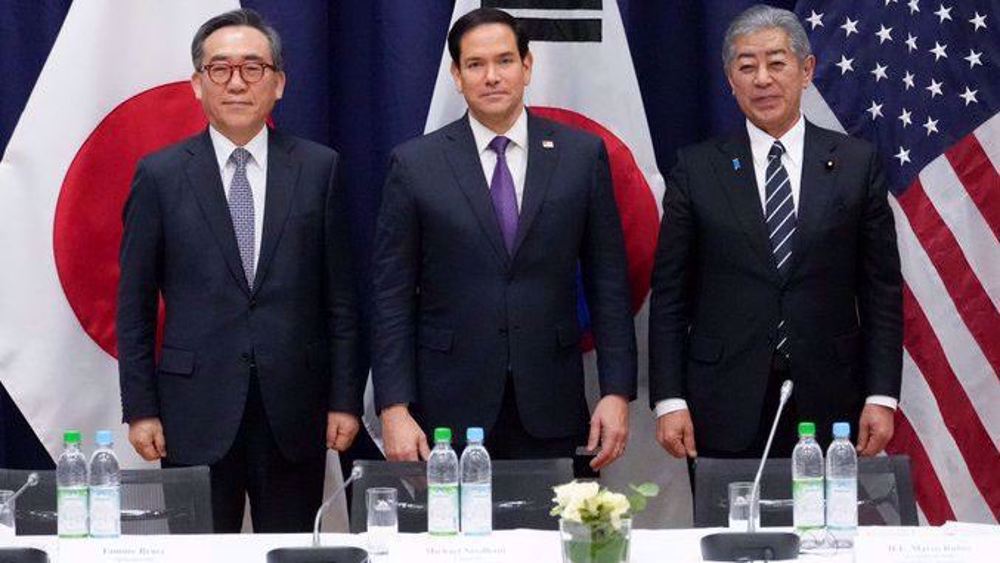
US, Japan, S Korea renew calls for ‘complete denuclearisation’ of North Korea
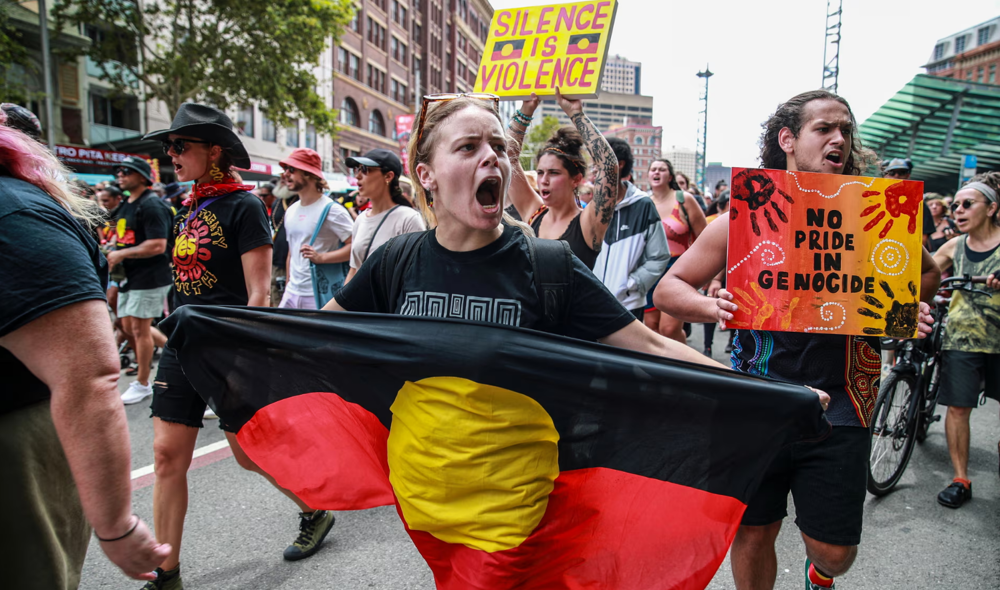
Indigenous rights activists rally on Australia Day to protest British colonization legacy

Colonialist’s monument toppled in Melbourne ahead of Australia Day
US special envoy in Kiev amid war of words between Trump, Zelensky
Hamas says ready to free all Israeli captives at once in phase two of truce
Israel kills one, injures two in southern Lebanon: Media
‘Colonial powers’ have no right to determine fate of Palestine: Qalibaf
Explainer: Why are MK-84 2,000-lb bombs approved by Trump for Israel so deadly?
President Pezeshkian: Iran, Qatar opening new avenues for cooperation
VIDEO | Displaced return home despite destruction
IRGC unveils new homegrown smart missiles, drones drill


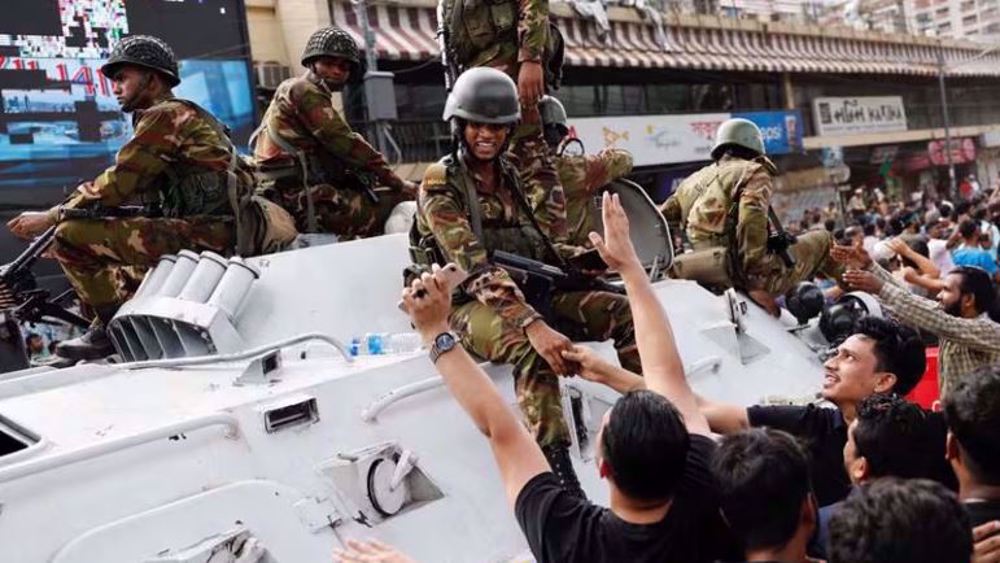





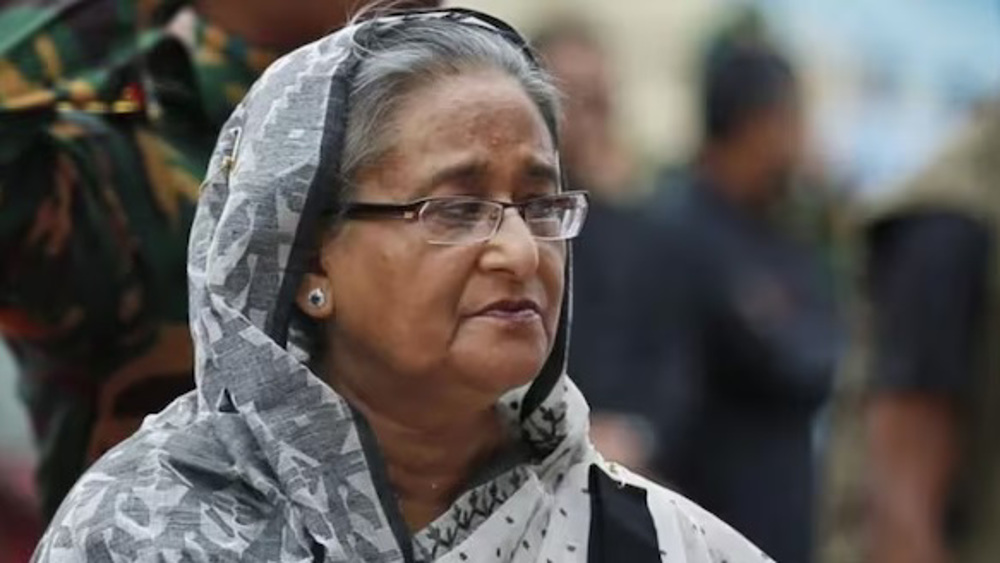
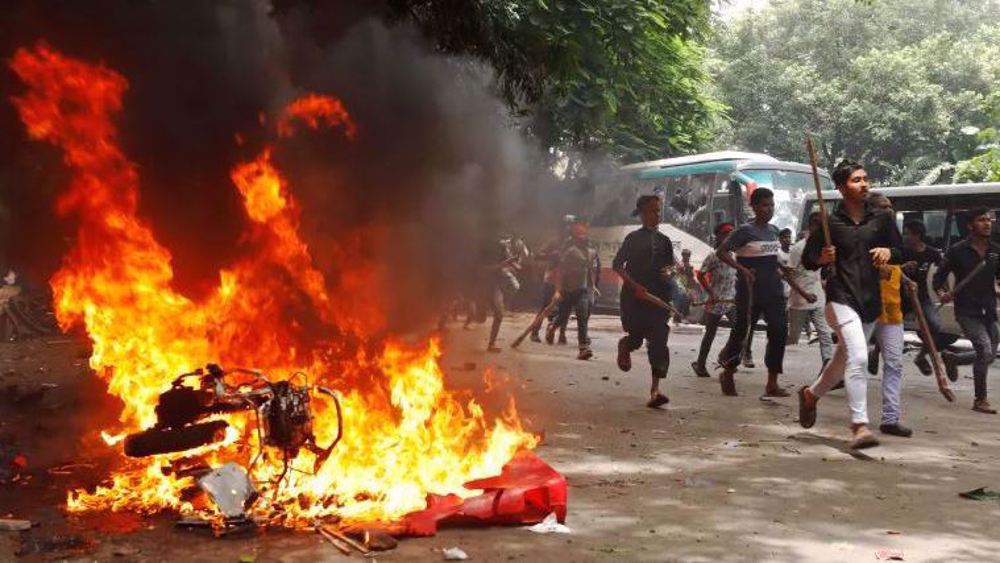
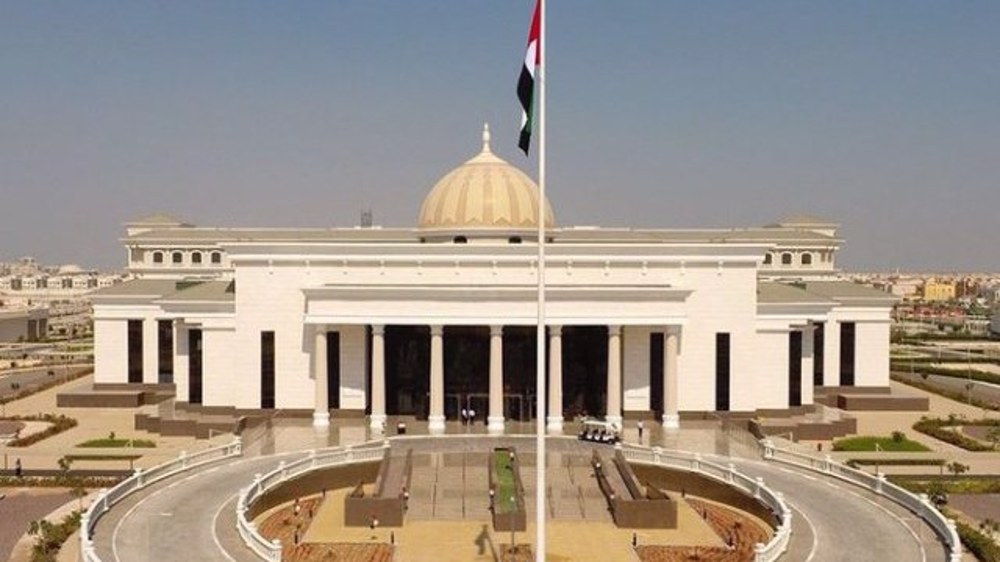

 This makes it easy to access the Press TV website
This makes it easy to access the Press TV website